Car rental in Germany
Planning a trip to Germany and weighing the option of renting a car? This decision can significantly impact your travel experience. Germany is renowned for providing excellent conditions for road trips, with outstanding roads, clear regulations, and the iconic autobahns that feature no speed limits.
Key Points
- Family Trip Savings — Renting a car in Germany tends to be more economical for groups of three or more. For instance, family train tickets from Berlin to Munich range from €240 to €400, while a weekly car rental including fuel typically costs between €350 and €500.
- Age Restrictions and Surcharges — The minimum rental age is typically between 18 and 21 years. Drivers under 25 are charged a “young driver” surcharge of €15 to €25 per day and have a limited choice of premium vehicles.
- Market Leaders — Europcar is known for offering the best prices and coverage. Sixt focuses on the premium segment, with 70% of their fleet consisting of BMW, Mercedes, and Audi cars, while Enterprise provides savings of 15 to 20%.
- Autobahns: Myths vs. Reality — Only about 30% of the autobahns are without speed limits. The recommended cruising speed is 130 km/h; exceeding this may affect your insurance coverage in the event of an accident.
- Insurance Nuances — Basic Collision Damage Waiver (CDW) costs €15 to €30 per day and reduces your excess to between €500 and €800. Full coverage with zero excess ranges from €25 to €45 per day. Alternatively, annual Rentalcover insurance is available for €60 to €120.
- Hidden Costs — Fuel prices range from €1.60 to €2.00 per liter; parking in city centers may cost between €2 and €4 per hour, and fines start at €15 for speeding (10 km/h over the limit). Additionally, automatic transmissions may incur a 15 to 25% higher rental fee compared to manual.
Article Summary
This detailed guide to car rental in Germany addresses everything from choosing between a rental car and public transport to practical driving tips for the autobahns. It includes up-to-date pricing, comparisons of leading rental companies, a breakdown of insurance options, and insights into hidden costs.
What the Guide Includes:
- Analysis of when renting a car is more advantageous than using trains or buses.
- Reviews of top rental companies, highlighting their features and prices.
- Document requirements and age restrictions for foreign drivers.
- Details about insurance options, from basic to comprehensive coverage.
- Practical tips for booking, picking up, and returning vehicles.
- Information on German traffic rules, autobahn usage, and city parking specifics.
- Guidelines for border crossings and international travel.
- Alternatives such as car sharing and peer-to-peer rentals.
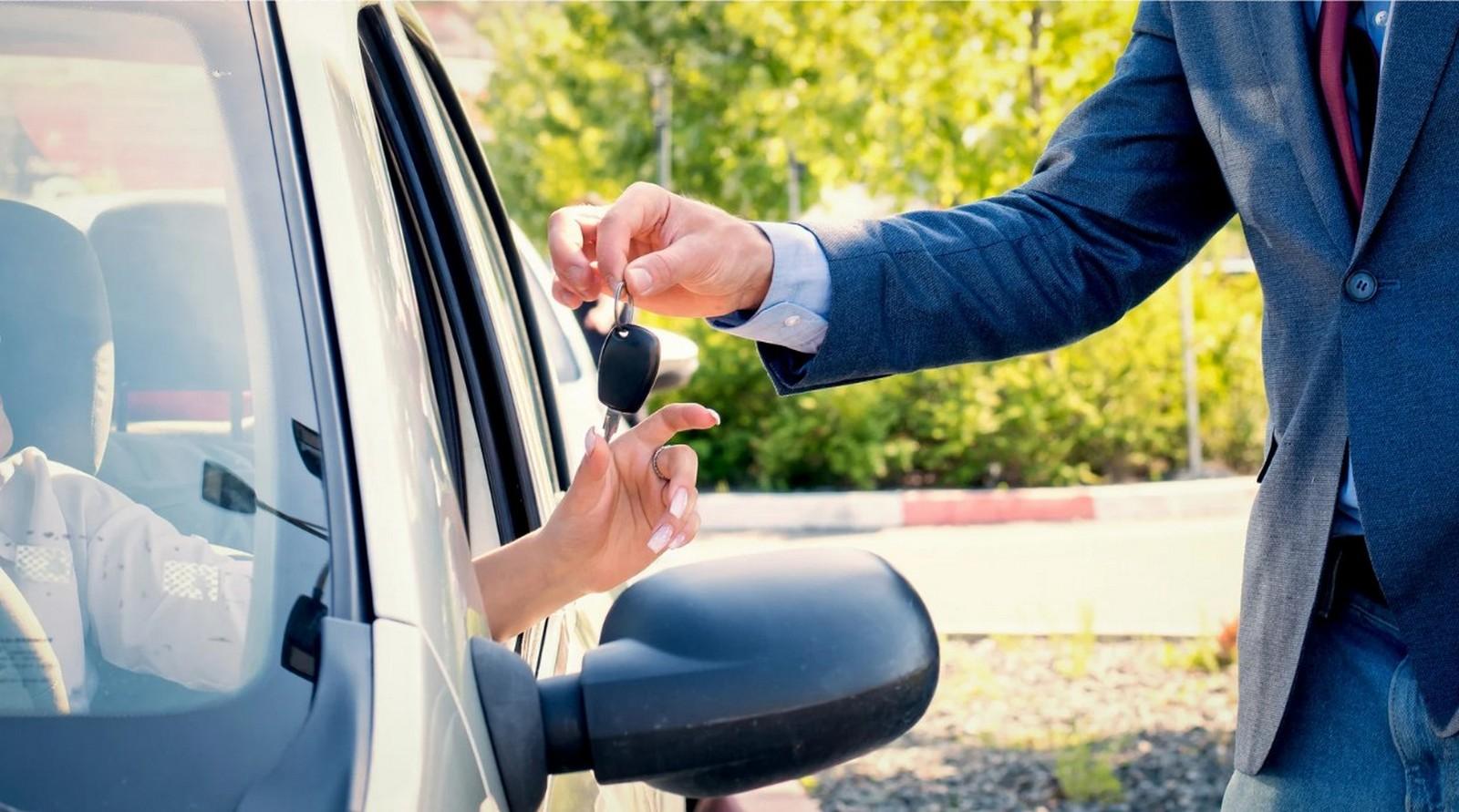
Car Rental vs. Public Transport: When to Choose What
Choose Car Rental When:
Exploring Countryside and Small Towns — Many of Germany’s picturesque locations are nearly impossible to reach via public transport. For example, Neuschwanstein Castle is just an hour’s drive from Munich, whereas traveling there by public transport can take 5 to 6 hours with multiple transfers.
Family Trips (3+ People) — The numbers are clear: a train ticket for a family of four traveling from Berlin to Munich costs between €240 and €400, whereas a weekly car rental with fuel expenses amounts to approximately €350 to €500.
Trips with Luggage — No one wants to haul three suitcases up the stairs of a Berlin metro station or scramble for luggage space on a crowded regional train.
Maximum Route Flexibility — Saw a sign for an intriguing castle or winery? With a car, you can easily divert from the main road.
Public Transport is Better for:
Travel Between Major Cities — ICE trains connecting Frankfurt, Berlin, and Munich run every hour, reach speeds of 320 km/h, and take you directly to city centers.
Solo Trips — The Deutschland-Ticket, available for €49 per month, provides unlimited travel on regional trains across the country.
Visiting Major City Centers — Berlin, Munich, and other metropolitan areas have environmental zones, where parking can cost between €3 and €15 per hour. Traffic jams can transform a 20-minute journey into an hour-long ordeal.
Click here to learn more about creating a personal itineraryRequirements for Car Rental in Germany
Age Restrictions and Features
The minimum age for car rental varies by company, typically ranging from 18 to 21 years. Sixt and Europcar require drivers to be at least 21 for most vehicles. Additionally, drivers under 25 incur a “young driver” surcharge of €15 to €25 per day.
Younger drivers also face restrictions on car class selection. Premium vehicles (such as BMW, Mercedes, Audi) are available only to those aged 25 and older, while certain sports models require drivers to be at least 30.
Documents for Car Hire in Germany
Driver’s License
The primary requirement is that the driver’s license must be printed in Latin characters. Most national licenses are accepted without additional documentation, as long as they are in Latin script.
International Driving Permit
For citizens of non-EU countries, an international driving permit may be necessary when traveling to some neighboring nations (like Austria and Italy). Within Germany, requirements can vary based on the issuing country of the driver’s license.
Bank Card
A credit card is typically required by all rental companies. A deposit ranging from €500 to €2000 will be held on the card, depending on the car class. Some companies do accept debit cards but impose restrictions on the types of vehicles available for rent.
Important Nuances for Foreigners
Six-Month Rule
Non-EU citizens may use their national licenses for only six months after arriving in Germany. After this period, obtaining a German driver’s license is necessary.
Minimum Driving Experience
The driver’s license must have been valid for at least one year. To rent premium vehicles in Frankfurt or to lease luxury cars in Munich, three years of driving experience is required.

Best Car Rental Companies in Germany
Top 6 by Popularity
Europcar – #1 in Germany
As the market leader in Germany, Europcar offers the widest range of locations and often the best prices. Their economy deals at airports and weekend packages are especially advantageous.
Sixt – German Quality in the Premium Segment
Sixt, originally from Munich, specializes in premium car rentals, with a fleet consisting of 70% BMW, Mercedes, and Audi vehicles. While their prices are above average, they offer excellent service and high-quality cars.
Avis – A Reliable International Network
Avis is present at all major airports and cities, making it a great choice for those who value service predictability and participate in a loyalty program.
Hertz – A Classic with Pitfalls
As one of the oldest car rental companies, Hertz has faced increasing complaints in recent years regarding unexpected surcharges and deposit issues.
Enterprise – Optimal Price-Quality Ratio
This American company is actively expanding in Germany. Renting a car in Berlin with Enterprise is often 15-20% cheaper than competitors.
Budget Car Rental – For Budget Travelers
As the name suggests, Budget offers basic vehicles with minimal additional services, making it the most economical choice.
Aggregators for Price Comparison
DiscoverCars
This international platform features a user-friendly interface and offers cancellation options. Frequently, it provides packages that include full insurance.
Billiger-mietwagen.de
As the leading German aggregator, it offers prices that are often 10-15% lower than international competitors, although its interface is only available in German.
Rentalcars.com(Booking Holdings)
The most popular international aggregator, Rentalcars.com has clear terms and provides good customer support in various languages.
Car Rental Costs in Germany
Current Prices by Class
Economy Class (VW Polo, Opel Corsa): €30-60/day. An ideal choice for city trips and couples, with fuel consumption of 4-5 l/100km.
Compact Class (VW Golf, BMW 1-Series): €40-80/day. This class offers a comfortable balance for most trips, accommodating four people with a spacious trunk.
Mid-Size Class (BMW 3-Series, Mercedes C-Class): €70-150/day. Perfect for long journeys and professional meetings, making it a popular choice for autobahn tourism.
SUVs and Minivans: €80-200/day. These vehicles are necessary for large families or trips to the mountainous regions of Bavaria.
Factors Affecting Cost
Seasonality
- July-August: Peak prices (+40-60% compared to winter).
- March-May, September-October: Optimal pricing (+15-25%).
- November-February: Lowest prices.
Car Pickup Location
- Airports: +20-30% compared to city offices due to fees.
- Railway Stations: +10-15%.
- City Offices: Base prices.
Transmission Type
In Germany, 80% of rental cars have manual transmissions, while automatic options cost 15-25% more and may not be available in all classes.
Hidden Costs
Fuel: €1.60-2.00 per liter. Diesel is typically €0.10-0.15 cheaper than gasoline, resulting in savings of €30-50 on a 1000 km trip.
City Parking
- Munich Center: €2.50-4.00/hour.
- Berlin Center: €2.00-3.50/hour.
- Frankfurt: €2.00-4.50/hour.
- Shopping Center Parking: €1.00-2.00/hour.
Traffic Violation Fines
- 10 km/h over the speed limit: €15.
- Illegal parking: €15-35.
- Running a red light: €90-200.
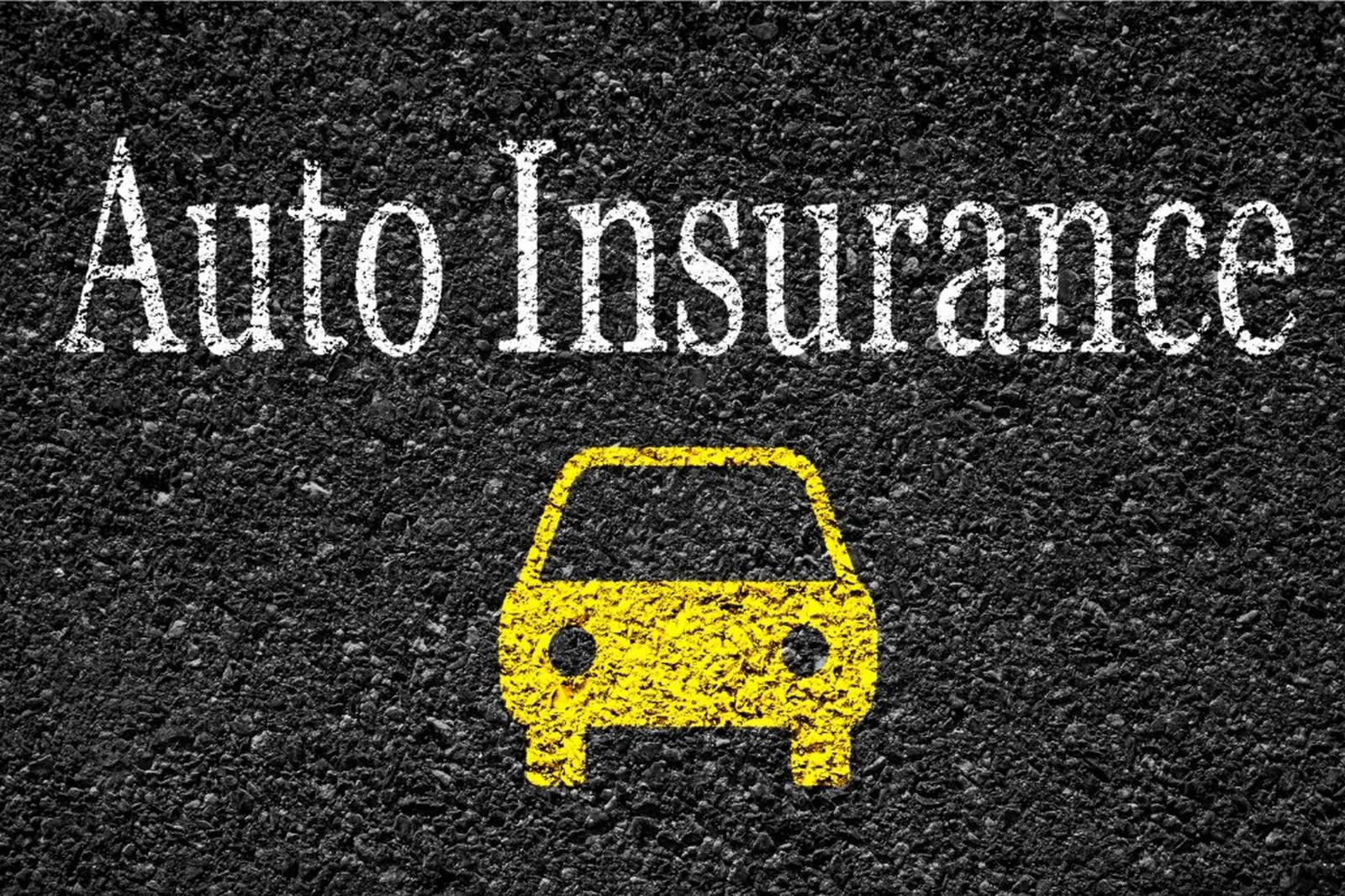
Car Insurance: What You Really Need
Mandatory Insurance
All rental cars come with liability insurance of at least €7.5 million and basic vehicle damage coverage. This is the minimum requirement, which may not suffice for significant damage.
CDW and Additional Options
Collision Damage Waiver (CDW): €15-30 per day. This reduces the excess from €1,500-2,000 to €500-800. However, it does not cover damage to tires, glass, or the underbody of the vehicle.
Theft Protection: €5-10 per day. This provides coverage against theft. While theft rates in Germany are low, this option can be beneficial when traveling to neighboring countries.
Zero Excess (Super CDW): €25-45 per day. This offers complete coverage with no excess. Although it is the most expensive option, it provides the greatest peace of mind.
Understanding Excess
When you pick up the car, an excess amount ranging from €500 to €2,000 is blocked on your credit card. This amount is refunded 7-14 days after you return the car, provided there is no damage.
In Germany, even a small scratch the size of a €2 coin is classified as damage. Repairs for such damage can cost between €300 and €800, which will be fully covered by the excess.
Alternative Insurance Options
Rentalcover.com offers independent insurance. An annual policy costing €60-120 covers excess on all rentals, potentially saving you €200-500 per year with frequent trips.
Bank Card Insurance: Many premium credit cards provide car rental coverage, typically as secondary insurance.
Since 2015, our website has specialized in individual planning of unique routes, taking into account personal preferences and desires. Each of you will receive a unique PDF file from us, which contains everything you need: travel routes, car rentals, hotels, the best tourist attractions, attractions for kids and everything you need for a perfect vacation. During the trip, we are available for you by phone via WhatsApp. Our personal service provides information from A to Z, taking into account many small details that can become a decisive factor on the way from a wasted trip to an unforgettable vacation. Our service will make your trip comfortable, save a lot of time on planning and preparation, and most importantly – will allow you to become freer and fully enjoy the pleasure of the trip.
Practical Booking Tips
Optimal Booking Time
Aim to book your rental car 2-4 weeks before your trip. Early reservations can lead to discounts of up to 20% and ensure the availability of your desired car class, particularly during peak season.
In March, rental prices are at their lowest—40-50% cheaper than in summer—making it an excellent time to explore Germany without the usual tourist crowds.
What to Consider When Booking
Transmission Type: If you cannot drive a manual transmission, be sure to select an automatic. Germany predominantly offers manual options, and reacquainting yourself with manual driving on vacation may not be ideal.
Mileage Limit: The standard mileage limit is 950 km per rental. Exceeding this incurs a surcharge of €0.25-0.50 per kilometer. For trips along the Romantic Road or visits to neighboring countries, consider packages with unlimited mileage.
Additional Drivers: There is a fee of €5-15 per day for each additional driver. All drivers must be present at the time of pickup and provide their licenses.
Child Seats: The cost is €10-20 per seat per day. It’s essential to book in advance, as availability may be limited during peak seasons. In Germany, children under 12 years old or under 150 cm tall are required to travel in car seats.
Choosing the Right Car Class for Your Needs
- City Trips: A compact class vehicle is ideal for navigating tight parking spaces in European cities.
- Autobahn Tourism: A mid-size car with a powerful engine is best for comfortable high-speed travel on the autobahn.
- Family Trips: A wagon or compact van will provide ample space for passengers and luggage.
- Romantic Routes: Enjoy convertible trips through wine regions in pleasant weather.
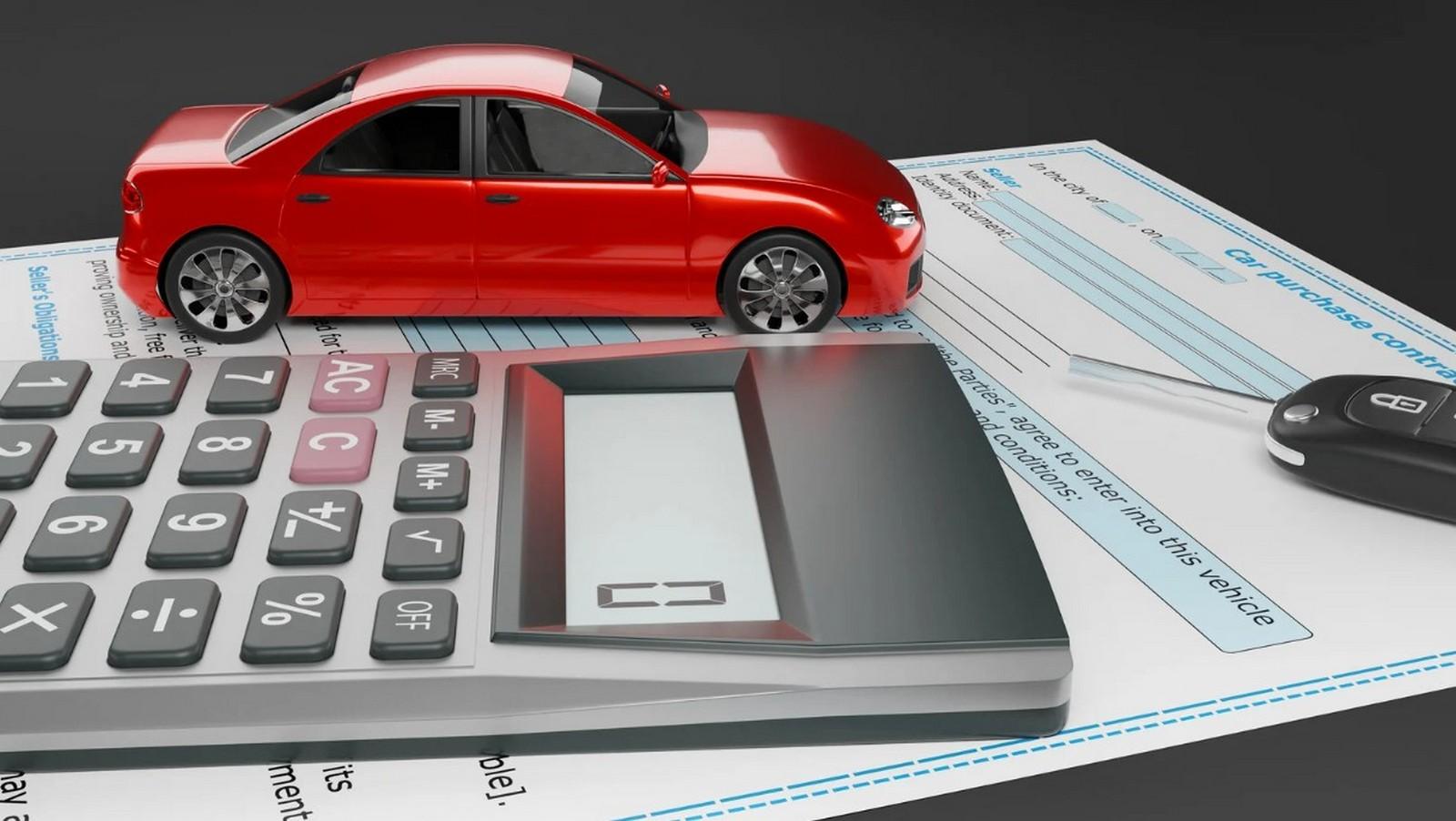
Car Pickup and Return: Avoiding Problems
Pickup Procedure
Detailed Inspection – Your Protection
Germans are known for their meticulousness regarding car condition. Even a scratch the size of a coin is considered damage. It is essential to photograph all sides of the car, including the wheels, bumpers, and even the roof.
Use your phone’s flashlight to inspect the car in dark airport garages, as many damages may only become visible with proper lighting.
Equipment Check
Ensure the car is equipped with a first aid kit, emergency stop sign, and reflective vest. Missing any of these items can result in a charge of €15-50.
Fuel Level
Take a photo of the fuel gauge to record the level. The “full-to-full” policy requires returning the car with the same fuel level. Under-filling will incur a cost of €2-3 per liter, plus a €15-25 service fee.
German Attention to Detail with Cars
In Germany, cars are seen as a point of pride, and any damage is taken seriously. A tourist who missed a scratch on the bumper during pickup was charged €650 for repairs upon return.
How to Protect Yourself:
- Record a video of all sides of the car at pickup.
- Take photos with timestamps.
- Insist that all damage be documented in the report.
- Request staff presence if you have any doubts.
Car Return
Return Time
Returning the car more than an hour late counts as an additional rental day. At Frankfurt and Munich airports during peak times, return queues can take 30-40 minutes.
After-Hours Return
If you are returning the car outside of business hours, be sure to take timestamped photos of the vehicle and leave the keys in the designated location. Also, save GPS coordinates of the parking spot.
Typical Problems and Solutions
Disputed Damage
If damage is discovered that you did not cause, insist on a detailed inspection and ensure it is recorded in the report. Avoid signing any documents in a foreign language without a translation.
Unexpected Charges
Budget car rental companies and some others may impose charges for “administrative costs” or “additional cleaning.” Always request a detailed breakdown of any charges.
Driving Features in Germany
Autobahns: Myths and Reality
Contrary to popular belief, only 30% of autobahns have no speed limits; the rest have speed limits ranging from 80 to 130 km/h, depending on traffic and weather conditions.
Recommended Speed:
A speed of 130 km/h is considered optimal, even on unlimited sections. Exceeding this speed in the event of an accident may result in insurance refusing full compensation.
Practical Autobahn Tips:
- Use the left lane only for overtaking.
- Move to the right immediately when a faster car approaches from behind.
- Pay attention to signs, as speed limits can change frequently.
Speed Limits and Fines
- In cities: 50 km/h (some areas 30 km/h).
- Country roads: 100 km/h.
- Autobahns: 130 km/h recommended; often 80-120 km/h limits
apply.
Fine System:
- 10 km/h over: €15.
- 20 km/h over: €35.
- 30 km/h over: €80 + 1 point.
- Over 50 km/h: €200-680 + license suspension of 1-3 months.
Cameras operate on all types of roads. Fines are sent to the rental company’s address and subsequently forwarded to the renter with an administrative fee of €25-50.
Environmental Zones (Umweltplakette)
Berlin, Munich, Cologne, and other major city centers have environmental zones. A green environmental sticker is required for entry. Most modern rental cars come with this sticker, but it’s advisable to check at pickup.
The fine for entering without a sticker is €80.

Parking in German Cities
Types of Parking Zones:
- Blue Zone: Parking with a parking disc (Parkscheibe).
- White Marking: Paid parking at meters.
- Yellow Marking: No stopping.
The Parking Disc (Parkscheibe) is a blue disc with a clock to indicate arrival time. It is included in all rental car equipment and typically allows for 1-2 hours of free parking.
Parking Costs:
- Munich city center: €3.50/hour, maximum €35/day.
- Berlin city center: €2.00/hour, maximum €24/day.
- Frankfurt: €2.50/hour, maximum €30/day.
Mobile Apps:
- EasyPark: Works in most German cities.
- PayByPhone: Popular in Northern regions.
- Park Now: Offered by BMW, integrated with navigation.
Gas Stations and Fuel
Fuel Types:
- Super (95 octane): €1.65-1.85/liter.
- Super E10 (95 octane with 10% ethanol): €1.60-1.80/liter.
- Super Plus (98 octane): €1.75-1.95/liter.
- Diesel: €1.50-1.70/liter.
Where to Refuel Cheaper:
- Supermarket Gas Stations (Esso, Shell at Real, Kaufland): 3-5 cents cheaper.
- Independent Suburban Stations: Savings of up to 10 cents per liter.
- ADAC Spritpreise App: Displays current prices.
Payment Methods: Most stations accept cards, but it’s advisable to have cash for smaller stations. Gas stations on the autobahn operate 24/7, while city stations usually open from 6:00 to 22:00.
Click here to learn more about creating a personal itineraryBorder Crossing and International Travel
Rules for Leaving Germany
EU Countries: Generally included in standard rental agreements without surcharges, with exceptions for some Eastern European countries.
Country Restrictions:
- Poland, Czech Republic: Surcharge of €5-15/day at most companies.
- Italy: Allowed by all major companies.
- Switzerland: Requires special permission and a surcharge
of €25-50.
Budget car rental companies and some discounters may fully prohibit travel to specific countries. Always confirm during the booking process.
Vignettes and Road Tolls
Austria: €9.60 for 10 days, €27.80 for 2 months. Purchase at gas stations before the border or online. Strict enforcement; the fine is €120.
Switzerland: 40 francs per year (no alternative options). Mandatory for all roads, including regular highways. Alternative routes through France may be more economical.
Czech Republic: Starting at 310 crowns (€12) for 10 days. Purchase an electronic vignette online or at gas stations.
Necessary Documents for International Travel
For most EU countries, a driver’s license and car documents are typically sufficient. However, an International Driving Permit may be required in Italy and some Eastern European nations.
Always Bring:
- Original driver’s license.
- Car documents (provided by the rental company).
- Insurance policy.
- Passport or ID.
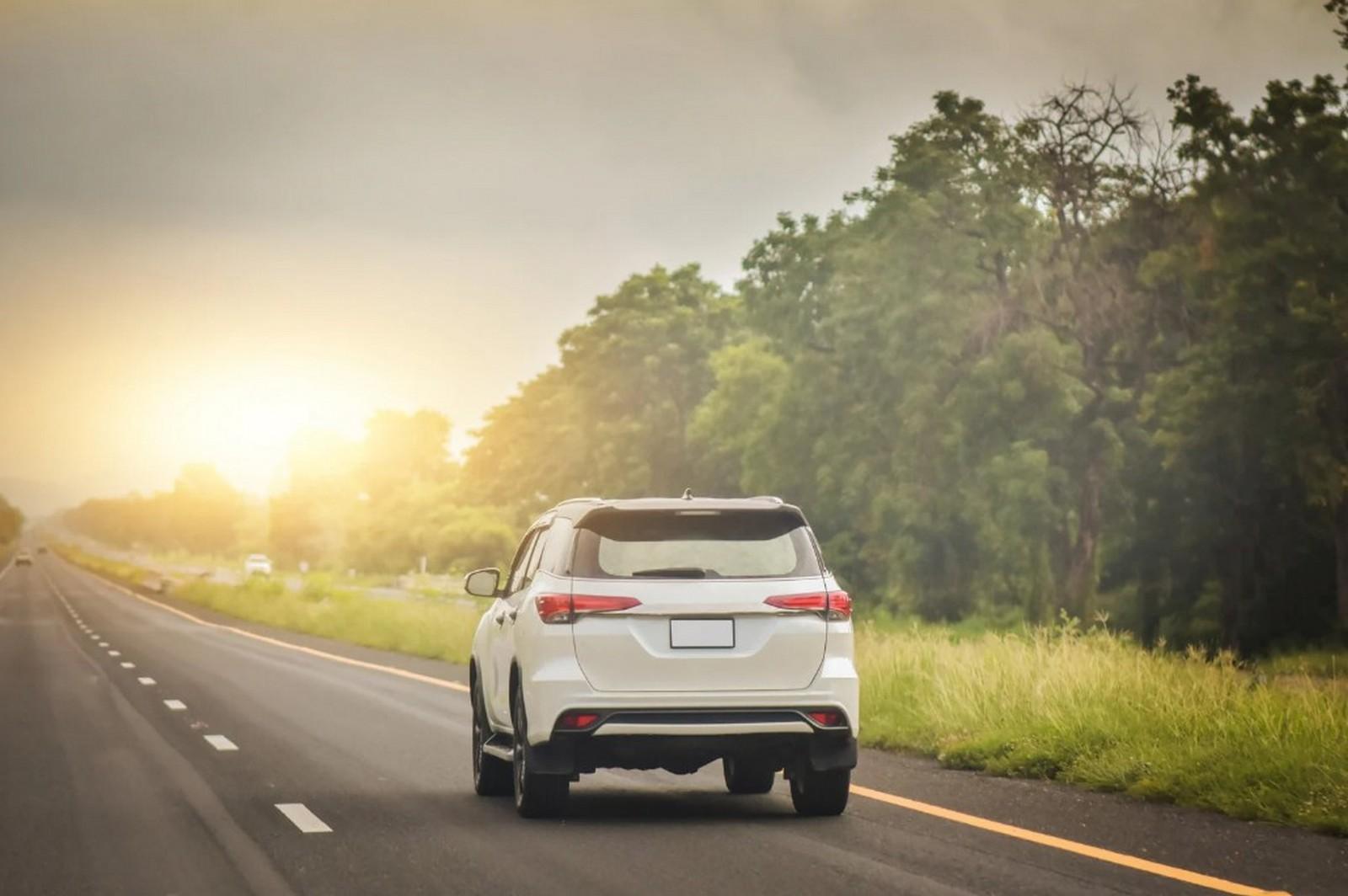
Alternatives to Traditional Rental
Car Sharing in German Cities
DriveNow (now ShareNow): Rent BMW and Mini vehicles by the minute, starting at €0.26 per minute in Berlin, Munich, and Hamburg. This option is convenient for short city trips.
Car2Go: Rent a Smart Fortwo for €0.24 per minute, making it the most economical choice for one or two people.
Flinkster (Deutsche Bahn): Available at all major train stations, with hourly rentals starting at €2.50 per hour, plus €0.25 per kilometer. Ideal for one-way trips.
Peer-to-Peer Rental
Drivy (now Getaround): Rent from private individuals for as low as €25 per day. This platform offers a wide selection of unique cars, though there may be fewer guarantees in case of issues.
SnappCar: A Dutch platform expanding into German border regions.
P2P Rental Risks: Potential lack of 24/7 support, insurance challenges during accidents, and unpredictable car condition.
Expert Review of Car Rental in Germany
Germany’s car rental market is justifiably among the best in Europe. After years of experience with various companies, I can attest to the exceptional quality of the fleet — you’ll receive nearly new cars equipped with modern safety systems and navigation. Sixt, in particular, impresses with its premium fleet, where 70% of the vehicles are BMW, Mercedes, or Audi.
Procedures are clear and straightforward, and language barriers are rarely an issue. The autobahns live up to their reputation; the quality of the road surface and driving culture make even long trips comfortable. Enterprise has a reasonable approach to damage assessment, which reduces stress during the return process.
A key characteristic of the German market is the strict requirements for the condition of returned vehicles. I recommend either obtaining full insurance or meticulously documenting the vehicle’s condition at pickup. By following these guidelines, renting a car in Germany can serve as an exemplary model of European service, complemented by excellent roads and high-quality vehicles.
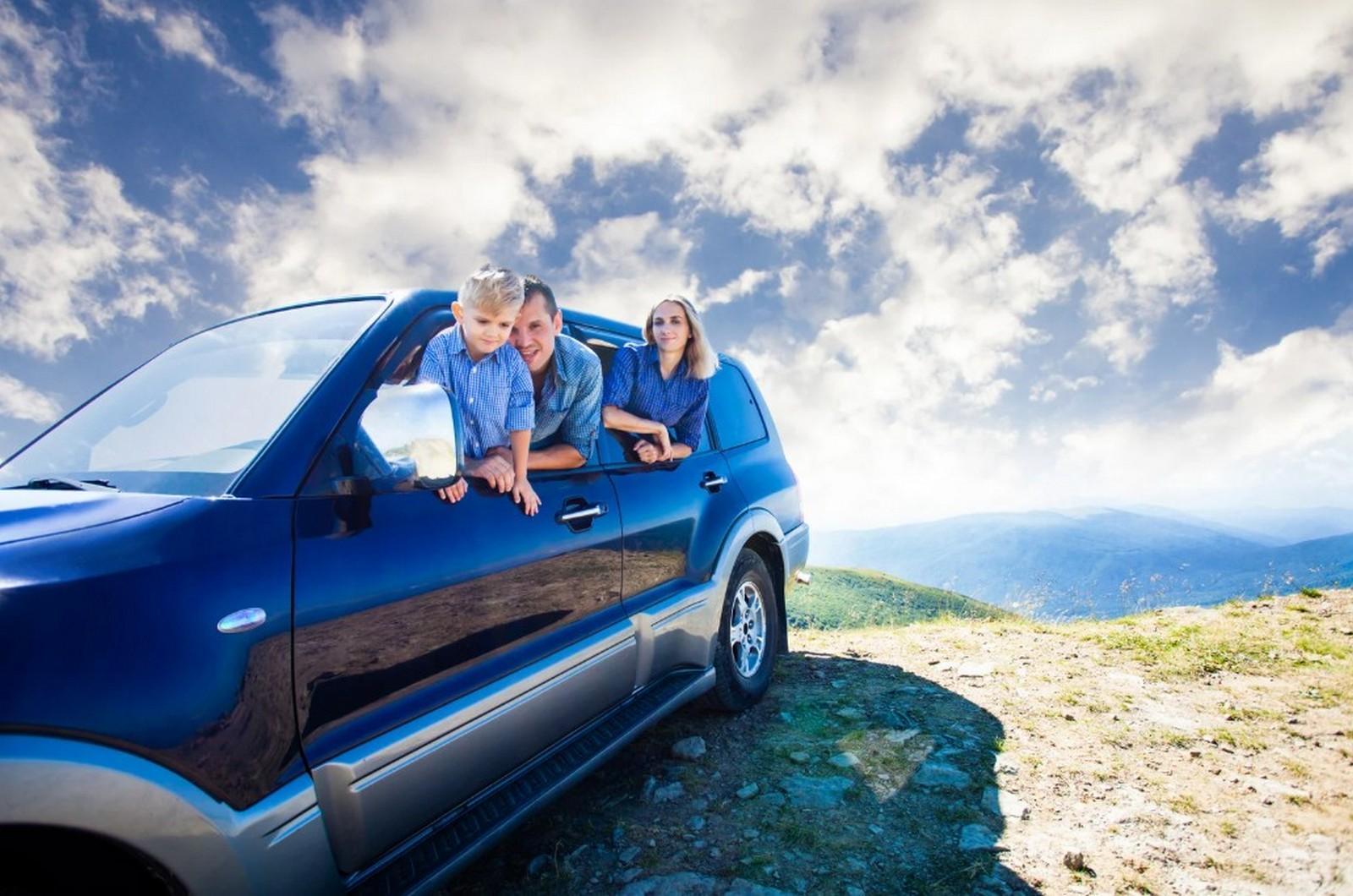
Frequently Asked Questions
Can you rent a car without a credit card?
Several companies accept debit cards, though there are limitations:
- Enterprise: Accepts Visa and Mastercard debit cards for economy class rentals.
- Europcar: Some locations accept debit cards with an additional deposit.
- Local companies: Often have more flexible conditions but come with higher risks.
Do you need an International Driving Permit?
Requirements vary based on the driver’s license’s country of origin. Many countries with licenses in Latin script allow the use of national licenses, but an International Driving Permit is recommended to avoid potential issues.
What should you do in case of an accident?
- Ensure Safety: Activate hazard lights and place an emergency sign 50 meters away.
- Call the Police: Dial 110 (mandatory for any damage).
- Photograph the Accident Scene and Damage.
- Exchange Contact Information with Other Participants.
- Immediately Contact the Rental Company: Refer to emergency numbers in your documents.
- Do Not Admit Guilt or Sign German Documents Without a Translation.
Fines: How They Are Issued and How to Pay
Fines will be sent to the rental company address 2-6 weeks after the violation. The company will then forward them to the renter along with an administrative fee of €25-50.
How to Pay:
- Bank transfer (details will be specified in the fine).
- Online through German administration websites.
- Some fines can be paid by credit card.
Failure to pay fines may lead to issues during future visits to Germany or the EU.
Click here to learn more about creating a personal itineraryWhat to Do If the Car Breaks Down?
All major rental companies provide 24/7 roadside assistance:
- The support service number can be found in the car documents.
- Free towing is available for technical failures.
- A car replacement is usually provided within 2-4 hours.
If You Break Down on the Autobahn:
- Turn on your hazard lights.
- Move your vehicle to the rightmost shoulder.
- Place an emergency sign 150 meters away.
- Exit the car and wait for help behind the barrier.
Can You Smoke in a Rental Car?
Officially, smoking is not prohibited; however, all rental cars are designated as non-smoking. A fine of €150-300 will be imposed for any noticeable tobacco smell or signs of smoking, plus the cost of dry cleaning.
Pet Transportation
Pets are allowed in all rental companies, but the following requirements must be met:
- A special carrier or animal safety belts are required.
- Additional cleaning fees of €50-150 may be charged depending on contamination.
- Some companies require prior notification before transporting pets.
What we propose Emma Heidi Take all the stress out of planning your trip! With our experts, you can create the perfect itinerary for you – complete, comfortable, and tailored to all your dreams, wishes, and needs. We take care of every little detail, so you can simply focus on enjoying your journey. We’ve been designing personalized itineraries since 2015, and over the years we’ve created thousands of custom itineraries for happy clients. Save time, avoid confusion – we do the work for you. Our service saves you weeks of searching, reading, comparing, and complicated planning. Instead of wasting endless hours – you receive a ready-to-use, accurate and clear itinerary. A tailor-made itinerary – built just for you. Your itinerary is personally designed based on our experts’ real field experience and genuine feedback from hundreds of travelers – including hidden discoveries and insider tips that don’t appear in any travel guide. Smart accommodation selection – often saves you hundreds or even thousands of dollars. We help you choose verified and recommended places to stay, checking availability for your exact travel dates. Sometimes we suggest hotels not “in the center,” but in safe, convenient, and highly strategic locations – which can significantly reduce travel costs and save you even thousands of dollars. We’re by your side even during the trip. We stay with you throughout your vacation – providing professional help whenever needed. If the weather changes, there’s a strike, a local event, heavy crowds, or any unexpected situation – we are here to update, guide, and adjust your itinerary in real time. Easy-to-use itinerary – with direct navigation links. Your itinerary includes direct Waze / Google Maps links – no need to search for parking addresses, no stress, no mistakes. Just tap – and go. Want to know if it’s really worth it? Take a look at the experiences of travelers who built their personal itinerary with us. Click here and let’s start building the itinerary that will save you time, money, and stress – and turn your vacation into perfection. Of course, your first inquiry is completely free – with no commitment whatsoever. How it works
Customer Experience Manager
![]()
![]()
![]()
![]()
![]()
Service cost: from only $420. (Special price for short itineraries up to 5 days). Clients tell us the itinerary saves them costly mistakes, fines, wrong choices – plus exclusive discounts on car rentals, better-priced accommodations, and money-saving local tips.


Latest articles
Natural History Museum Vienna

Natural History Museum Vienna (Natural History Museum Vienna) is one […]
Kaprun Dam (Hochgebirgsstauseen)

Kaprun Dam (Kaprun Hochgebirgsstauseen) is a high-altitude reservoir complex set […]














